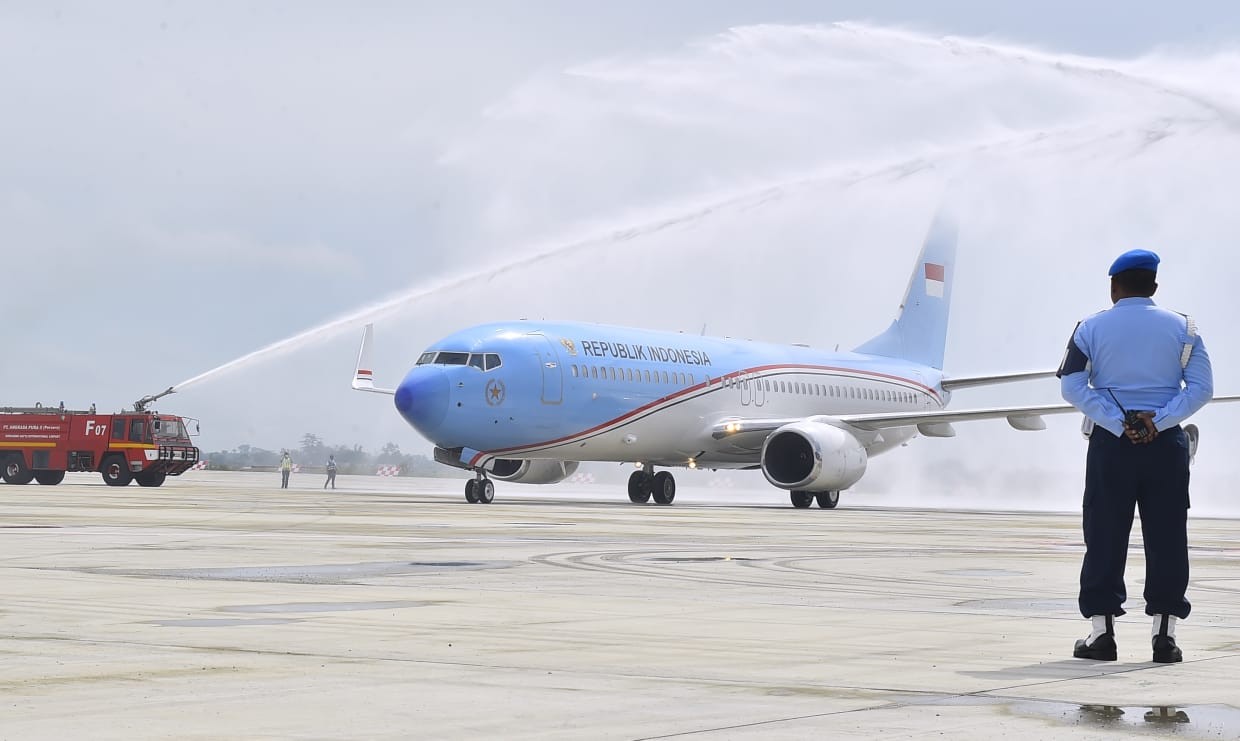Popular Reads
Top Results
Can't find what you're looking for?
View all search resultsPopular Reads
Top Results
Can't find what you're looking for?
View all search resultsWest Java election lacks environmental perspective
West Java is treated as the priority for industrialization, with all kinds of infrastructure required.
Change text size
Gift Premium Articles
to Anyone
N
ational political dynamics, spurred by social media, have turned the gubernatorial race in West Java, and other populous provinces, into a battleground ahead of the 2019 presidential election that may once again pit Joko “Jokowi” Widodo against Prabowo Subianto.
With this bitter rematch in the front of the public’s mind, voters set to elect regional leaders on June 27 have tended to pay little attention to candidates’ understanding, let alone commitment, to sustainable development as a grand strategy to achieve prosperity for all. In West Java in particular, most programs offered to voters comprise trivialities, such as the provision of a social safety net without a focus on building self-reliability and the development of infrastructure projects without adequate environmental considerations.
Few, for example, have taken a deep look into the National Strategic Projects in West Java like the Kertajati International Airport in Majalengka, let alone the impoverishment and marginalization that may result from the proliferation of hotels and modern housing in the so-called Kertajati aerocity. The project involved the demolition of 11 villages, the relocation of almost 2,000 families and the sacrifice of 1,800 hectares of rice fields and farms.
The land acquisition for the airport was marred by a protest involving hundreds of Sukamulya residents on Nov. 17, 2016, which was handled by 1,500 police and military personnel.
The legacy of outgoing governor Ahmad Heryawan and his deputy Deddy Mizwar, who is running for governorship, also included the loss of 4,800 hectares of land in 25 agriculturally pristine villages plus 1,300 hectares of virgin forests for the Jatigede dam three years ago.
In the name of development, each of the four candidates contesting the gubernatorial election appear to hold only positive frames of mind toward the ongoing infrastructure mega-projects. The Investment Coordinating Board (BKPM) touts West Java as the most popular destination for investment, predicted to attract Rp 765 trillion worth of capital and contribute more than 50 percent of national GDP in manufacturing sector this year.
In fact, West Java is treated as the priority for industrialization, with all kinds of infrastructure required to facilitate this ambition. Ironically, this is at the expense of about 100,000 hectares of productive land every year, which has to be converted into industrial and housing estates.
The 2009-2029 provincial spatial plan and the National Middle-Term Development Plan 2014-2019 lists more than 100 infrastructure projects, including three seaports, 63 power generation plants (hydropower, microhydro, geothermal, etc), 25 provincial roads and toll roads, 10 railways, 14 dams and two airports.
According to the Indonesia Forum for Environment (Walhi), the province’s large-scale infrastructure projects, intended to facilitate the mining, manufacturing, transportation and power sectors, have caused impoverishment and ecological disasters. In the last decade alone, environmental degradation impacted nearly 425,000 hectares of land.
The projects have exacerbated geological and man-made disasters like landslides and floods, which have occurred frequently in some parts of West Java. The Meteorological, Vulcanology and Geophysics Agency has declared 26 regencies and municipalities in West Java as vulnerable to land fracture.
On one of the most horrible landslides and flashfloods hit Garut and Sumedang in September 2016. Experts, as well as the Environment and Forestry Ministry, came to the conclusion that the main cause of the disaster was rampant land conversion in mountainous upstream areas of the Cimanuk River.
The mushrooming construction of commercial sites in Kertajati aerocity and the relocation of industries from the Citarum Basin to Jatitujuh, Majalengka and Ujungjaya, which will have their water and electricity needs fulfilled by Jatigede Dam, seems set to be a copy-and-paste of the environmental devastation seen in the Citarum Basin.
Yet neither gubernatorial candidates nor their running mates have voiced any intention to evaluate the feasibility of these projects from an environmental point of view. None of them dare to call for a review of the provincial bylaws No. 22/2010 and 12/2014, which envision West Java as a megalopolis comprising metropolitan clusters and the so-called growth centers that are urban-minded.
West Java’s vulnerability to natural disasters has apparently not been convincing enough to win the hearts and minds of voters from one election to the next. Every politician eying the top executive post in the province, be they either pro-Jokowi or pro-Prabowo, have not considered the sustainability of people’s livelihoods as a cause to fight for.
A good politician requires nerves of steel to initiate a review, if not an overhaul, of the ambitious infrastructure-oriented development that has so far left humanity and civility behind. To be a nationalist-minded leader requires a commitment to the environment.
To be able to protect his or her people, a leader has to preserve the environment, where the people live and develop. Unfortunately, whoever wins the West Java gubernatorial race, the environment will be the big loser.
***
The writer is a freelance journalist and member of the environmental group Sarekat Hijau Indonesia.











